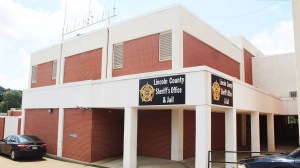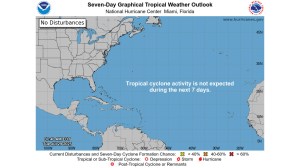Hyde-Smith seeks to enroll at-risk rural hospitals in demonstration program to stave off closures
Published 5:00 pm Wednesday, April 17, 2024

- SCREEN CAPTURE Sen. Hyde-Smith and HHS Secretary Becerra Discuss Hospital Closures, Maternal Health in Mississippi.
U.S. Senator Cindy Hyde-Smith (R-Miss.), of Brookhaven, on Tuesday enlisted the assistance of Health and Human Services (HHS) Secretary Xavier Becerra to determine whether some Mississippi hospitals at risk of closure could be enrolled in a demonstration program that would improve their reimbursement rates.
Hyde-Smith serves on the Senate Labor, Health and Human Services, and Education Appropriations Subcommittee and raised the Rural Community Hospital Demonstration Program and other Mississippi healthcare-related issues at a hearing to review the FY2025 HHS budget requests.
“Mississippi ranks among the states with the highest rates of hospitals at risk of closing. This demonstration program could serve as a means to keeping their rural hospital doors open to serve their communities in need of high-quality healthcare. However, CMS has not solicited applications since 2017 despite, as I understand it, there being a handful of open spots in the program,” Hyde-Smith told Becerra. “Can you commit to working with me to solicit applications for the program and to find ways to help hospitals keep their doors open in rural areas?”
Trending
Becerra said the Centers for Medicare and Medicaid Services (CMS) demonstration program can be a “lifeline” by using alternative payment models for rural hospitals facing financial constraints with the Medicare Inpatient Prospective Payment System. Hospitals in Columbia, Meridian, and Picayune have participated in this program.
“It is absolutely essential that we give hospitals that are willing to stay open a chance to survive if the older version, definition of how they get reimbursed isn’t working for them. We look forward to working with you because we have got to figure out a way to keep some of these facilities open and operating,” Becerra said.
Hyde-Smith also sought insights into how HHS could help improve maternal health in Mississippi, where “OB deserts” make access to prenatal care a challenge.
“Mississippi has consistently seen some of the poorest maternal health outcomes in the nation, made worse by high rates of chronic disease and limited access to specialty care for many mothers. We have also led the nation in infant mortality, something we’re not proud of at all, and very concerned about. But it’s driven largely by a very high preterm birth rate stemming from lack of prenatal care. Access to maternity care in rural areas is a major challenge. We are seeing a rapid expansion of ‘OB deserts’ across Mississippi. In some areas of my state women are having to drive more than an hour for any kind of obstetric care,” Hyde-Smith said. “How can we work with you to improve outcomes for our mothers and babies in Mississippi?”
Becerra stressed the need for early access to care for pregnant women, which makes keeping rural healthcare facilities open.
“The most important thing is early access and, as you mentioned, sometimes because a state like Mississippi has a lot of rural communities it is tough to have access. That’s why it is so important to not allow any existing health facility to go under in rural America because then the access becomes even more difficult,” Becerra said. “Telemedicine, telehealth is going to be very important to for communities and families in rural America because it means they can have access without the physical travel.”
Trending
Hyde-Smith and Becerra both agreed that Congress, working with HHS and CMS, must act to extend long-term authorization for Medicare legislative and regulatory telehealth flexibilities that will expire in December.
“Our nation’s healthcare systems and providers need clarity and stability to implement and maintain the operational and clinical practices needed to ensure seamless, quality care for millions of Medicare beneficiaries nationwide. I strongly encourage CMS to work alongside Congress by continuing to share relevant telehealth data with Members of Congress and staff as well as continuing to engage with stakeholders through public calls on pertinent telehealth issues,” Hyde-Smith said.
Hyde-Smith is an original cosponsor of the comprehensive Creating Opportunities Now for Necessary and Effective Care Technologies (CONNECT) for Health Act (S.2016), which would expand coverage of telehealth services through Medicare, make permanent COVID-19 telehealth flexibilities, improve health outcomes, and make it easier for patients to connect with their doctors.




